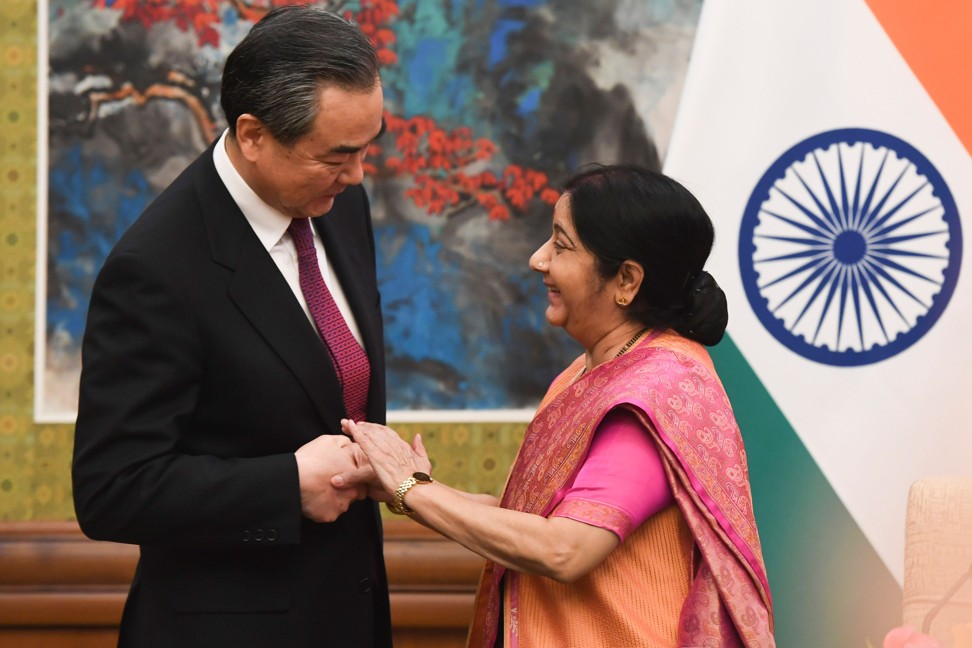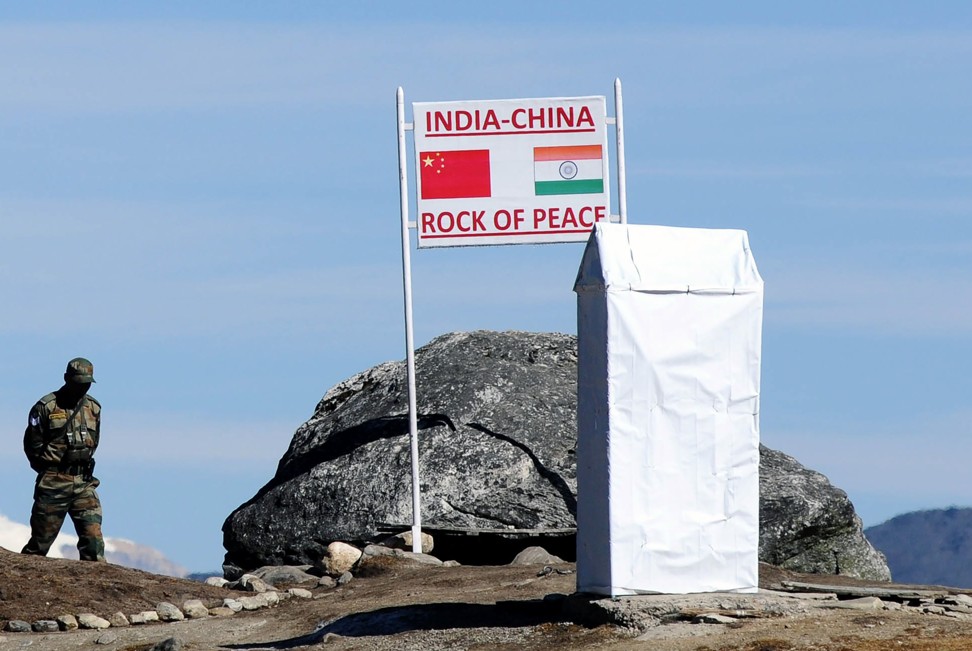
Indian Prime Minister Narendra Modi to visit China for one-on-one summit with Xi Jinping
This week’s meeting could help the two Asian giants reset ties, analysts say
Indian Prime Minister Narendra Modi will travel to central China this week for an informal summit with Chinese President Xi Jinping, a meeting analysts say could help the two Asian giants reset ties.
Modi is also due to travel to China in June for a regional security summit – it is highly unusual for a foreign leader to visit the country twice in such quick succession.
The summit will be held in Hubei capital Wuhan during Modi’s visit from April 27 to 28. It was announced in a joint press conference held after Chinese Foreign Minister Wang Yi met visiting Indian External Affairs Minister Sushma Swaraj in Beijing on Sunday.

The two leaders will meet one-on-one, without any ministers or advisers, and the summit aimed to redefine the future relationship of the two countries, according to Indian media reports. It will also coincide with the historic meeting between the leaders of North and South Korea.
“This year, under the guidance of our leaders, the China-India relationship has realised good development and shown a positive momentum,” Wang said at the press conference.
“The informal summit will be an important occasion for them to exchange views on bilateral and international matters from an overarching and long-term perspective with the objective of enhancing mutual communication at the level of leaders,” Swaraj was quoted as saying by external affairs ministry spokesman Raveesh Kumar on his official Twitter account.
Swaraj will also take part in a preparatory meeting in the capital on Tuesday for the annual Shanghai Cooperation Organisation summit to be held in the eastern coastal city of Qingdao in June.
India and Pakistan joined the China-led security bloc last year.
Indian Defence Minister Nirmala Sitharaman will meanwhile attend a separate meeting of SCO defence ministers on Tuesday.
A Chinese analyst said Modi’s visit would be a chance for the two sides to reset ties following last year’s protracted military stand-off in the disputed Himalayan border region of Doklam.
New Delhi’s invitation for the Dalai Lama to visit Arunachal Pradesh and its criticism of Beijing’s trade and infrastructure strategy, the “Belt and Road Initiative”, have also strained relations between China and India amid growing rivalry over regional influence.
“India has made goodwill gestures since March and the two countries are now ready to get their ties back on track,” said Jiang Jingkui, an expert on China-India relations at Peking University.
Jiang said a separate bilateral meeting between Xi and Modi ahead of the SCO summit would give the two leaders enough space and time to build a post-Doklam framework for relations.
“The meeting could be an opportunity for the two countries to explore a new mode of exchange as they seek to develop a more mature relationship that transcends border disputes, and try to find new ground for political, economic and regional cooperation,” Jiang said.
Wang and Swaraj also agreed on Sunday to allow a religious pilgrimage – the Kailash Mansarovar Yatra, taken by Hindus, Jains and Buddhists – to resume through the Natha Lu route in Sikkim, 10 months after it was stopped following the Doklam stand-off.

There have been signs of a thaw in relations in recent months, with a series of high-level exchanges, including Indian National Security Adviser Shri Ajit Dova’s visit to China from April 12 to 13.
Top economic officials from the two sides also attended a strategic economic dialogue in Beijing on April 13.
Meanwhile in March, Indian officials shunned events marking Tibetan spiritual leader the Dalai Lama’s 60 years of exile in India – seen by many as a move to avoid riling China.
Indian newspaper The Economic Times reported earlier that Beijing had reached out to New Delhi with an offer to resume military exchanges that had been put on hold since the Doklam stand-off.
The routine exchanges between India and China include a joint annual exercise and reciprocal visits by army commanders responsible for border areas.
Last year’s confrontation escalated after China started building a road in Doklam, which is claimed by India’s ally Bhutan. It became the worst crisis between the two sides since they went to war in 1962 and lasted for two months before they agreed to pull back their troops in late August.

